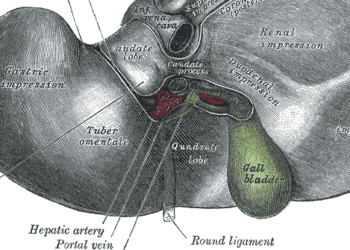Mixed cardiovascular benefit with PCSK9 inhibitior bococizumab: The SPIRE trial
1. When added to statin therapy, the proprotein convertase subtilisin/kexin type 9 (PCSK9) inhibitor bococizumab significantly reduced the risk of cardiovascular events in patients with low density lipoprotein cholesterol (LDL-C) levels greater than 100 mg/dL, but had no benefit in patients with LDL-C lower than 100 mg/dL.
2. Combined analyses, regardless of LDL-C levels, revealed significantly better outcomes with larger LCL-C reductions and longer duration of treatment.
Evidence Rating Level: 1 (Excellent)
Study Rundown: While statins significantly reduce LDL-C, lipid levels and cardiovascular risk remain high in a subset of patients. Recent insight into PCSK9’s role in lipoprotein receptor degradation and increased LDL-C stimulated the development of monoclonal antibodies to inhibit PCSK9. While PCSK9 inhibitors have demonstrated powerful lipid lowering effects in synergism with statins, studies on the humanized bococizumab were discontinued in 2016 due to attenuated reductions in LDL-C and evidence of an immune response in a subset of patients. Data from the six parallel trials that focus on LDL-C have previously been published. This reports findings from the two largest trials that evaluated cardiovascular outcomes in lower-risk (SPIRE-1) and higher-risk (SPIRE-2) patients. The primary end point – a composite of adjudicated and confirmed cardiovascular events – only demonstrated significant benefit in higher-risk patients. No significant difference in serious adverse events, including new onset diabetes and cataracts, were found between bococizumab and placebo.
This was a randomized, multinational, double-blinded trial that followed a large cohort of lower-risk (SPIRE-1) and higher-risk (SPIRE-2) patients with elevated LDL-C. The primary limitation was the short-duration of the study and early termination of follow-up. While bococizumab will not be available for clinical use, the results support the role of greater LDL-C reductions for cardiovascular benefit in high-risk patients and the promise of PCSK9 inhibitors.
Click to read the study, published in NEJM
Relevant Reading: Lipid-reduction variability and antidrug-antibody formation with bococizumab
In-Depth [randomized controlled trial]: A total of 16,817 patients with LDL-C greater than 70 mg/dL (lower-risk group, mean LDL-C, 94 mg/dL) were enrolled in SPIRE-1 and 10,621 patients with LDL-C greater than 100 mg/dL (higher-risk group; mean LDL-C, 134 mg/dL) were enrolled in SPIRE-2 before trial termination (October 2013 – November 2016). A 6-week placebo run-in to ensure adherence was followed by randomization to either bococizumab or placebo. The primary end point was a composite of nonfatal myocardial infarction (MI), nonfatal stroke, hospitalization for unstable angina requiring urgent revascularization, or cardiovascular death.
In SPIRE-1, the primary end point occurred in 173 patients in both the bococizumab group and placebo (HR 0.99; 95%CI 0.80 to 1.22; p = 0.94). In SPIRE-2, the primary end point occurred in 179 patients in the bococizumab group and 224 patients in placebo (HR 0.79; 95%CI 0.65 to 0.97; p = 0.02). In the combined analysis, the primary end point occurred in 352 patients in the bococizumab group and 397 patients in placebo (HR 0.88; 95%CI 0.76 to 1.02; p = 0.08). Significant differences in the primary end point across both trials were reported among patients who had LDL-C reductions greater or equal to the median reduction values at 14 weeks, as well as patients randomized before the median date of randomization (13.8 months). Rates of serious adverse events, including newly diagnosed diabetes and cataracts, were similar between bococizumab and placebo. There was a higher rate of injection-site reactions in the bococizumab group (10.4% vs. 1.3%; p < 0.001).
Image: PD
©2017 2 Minute Medicine, Inc. All rights reserved. No works may be reproduced without expressed written consent from 2 Minute Medicine, Inc. Inquire about licensing here. No article should be construed as medical advice and is not intended as such by the authors or by 2 Minute Medicine, Inc







